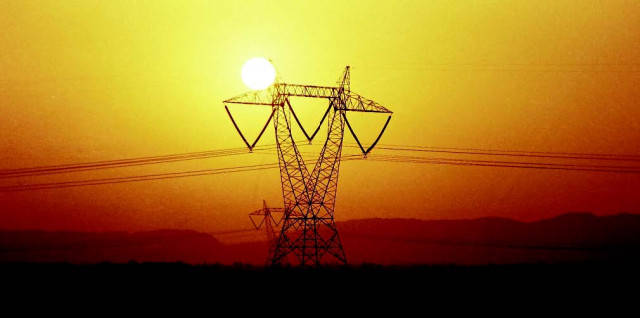Energy crisis: Electricity sharing a point of dispute, says AG
Says stakeholders linked to power generation failed to agree on equitable distribution.

The Supreme Court will take up the case regarding prolonged hours of load-shedding on June 19. PHOTO: ARIF SOOMRO/EXPRESS/FILE
The Attorney General of Pakistan, Munir A Malik informed the Supreme Court on Tuesday that different stakeholders related to electricity generation had failed to reach a consensus regarding equitable distribution of electricity.
He had earlier met representatives of the ministry of water and power, Sui Northern Gas Pipeline Limited, electricity distribution companies, and cement and textile industries, following the apex court’s orders.
In his written response after the meeting, the attorney general noted that the participants linked equitable distribution of electricity to a number of factors such as payment of utility bills, prevailing weather conditions, level of discomfort, nature of industrial process, gas supplies, and the effect of employment and binding contracts.
Malik said that the other contentious issues on which parties were at odds included the figure of total demand of electricity in the country.
The ministry of water and power had estimated the figure to be around 17,211 megawatts (MW) but the All Pakistan Textile Mills Association disputed the number.

However, the attorney general further stated that there were certain issues over which all stakeholders agreed upon, such as at least 10,483MW electricity was being generated in the country currently, all of which was fed into the main grid station from where it was distributed by National Transmission & Dispatch Company and then further distributed to distribution companies in proportion to their respective loads.
In addition, the participants agreed that there was no mechanism to ascertain whether a distribution company had drawn electricity according to the amount that was allocated to it from the grid station.
However, he stated that the ministry of water and power will prepare load-shedding plans based on different permutations as the hours of domestic load-shedding and industrial load-shedding had an inverse relationship.
“An extra hour of supply for one sector means an extra hour of load-shedding for the other,” Munir A Malik told the court.
The Supreme Court will take up the case regarding prolonged hours of load-shedding on June 19.
Earlier, Malik had met all stakeholders on June 12 to discuss the issue of uniform load-shedding in detail, as industrial representatives had complained that despite court’s orders, industries were experiencing longer power outages, increasing the risk of job cuts and decline in production.
A three-judge bench of the apex court headed by Chief Justice Iftikhar Muhammad Chaudhry had asked the attorney general to come up with a workable solution to the issue.
Published in The Express Tribune, June 19th, 2013.



















COMMENTS
Comments are moderated and generally will be posted if they are on-topic and not abusive.
For more information, please see our Comments FAQ